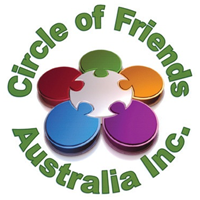Remembering people who lived in Inverbrackie Detention Centre, Alternative Place of Detention (APOD) near Woodside SA, 2011–2014 and in Pt Augusta Housing (APOD) at Ellis Close, 2012–2013.
Circle of Friends members visited people detained in Inverbrackie over the duration of its operation as a detention centre. Despite the shuffling of some people from Inverbrackie to Pt Augusta Housing APOD and then back to Inverbrackie, Circle of Friends members developed long-lasting friendships with the people they visited.
The detainees were asylum seekers who had arrived by boat at Christmas Island between 2009 – 2012. There were families with babies, toddlers and teenagers, and single people and grandparents. There were pregnant women, some alone, separated from their husbands by Immigration.
Our friends were from Sri Lanka, Iran, Iraq, Syria, Afghanistan, Nepal, Myanmar and Vietnam. Some Tamil people had previously been detained in a hot and dusty detention centre at Leonora in outback Western Australia prior to arriving at Inverbrackie.
When Inverbrackie was closed some people were granted release on Community Detention visas in Adelaide and other cities. But many were transferred to Wickham Point Detention Centre in the swamps of Palmerston in the Northern Territory. This enormous prison-like centre of razor wire compounds and small rooms was purposely built to contain asylum seekers. It was a huge shock for people transferred from the unfenced houses and open green grass of Inverbrackie. We received calls from our friends who were transferred to this centre crying and asking us for help.
A few Tamil women and children were sent to Villawood Immigration Detention Centre (IDC) housing compound in Sydney. Others who had been detained at Pt Augusta Housing from 2012 – 2013 were variously transferred to Darwin Airport Lodge Detention centre (cohort of young Vietnamese people) or Villawood IDC (particularly a cohort of 20 Sri Lankan Tamil men who remained in detention until 2016). These sudden forced transfers at night or early in the morning, created immense distress. I continued to visit people in Villawood IDC, and a few Circle of Friends members also visited our friends in Wickham Point IDC (and others in Yongah Hill IDC, Northam, Western Australia).
The people we supported now live in Adelaide, Perth, Sydney, Melbourne, or Brisbane. Some have been granted permanent visas, others have temporary visas, some have short-term or long-term Bridging Visas as they are still being processed by Immigration or are appealing refusal decisions, and at least two families have been denied any documentation by Immigration/DHA.
Four single women, widows each with two or three children, are now living in Adelaide, Perth, Sydney and Melbourne. Three were granted permanent residence and are citizens. One remains on a Bridging Visa. All children are either at school, university or working.
The women are typically working in support roles in aged care. These brave mothers fled their homelands when their children were very young, crossed the sea, endured detention and when released they relocated to areas in Australia where friends lived. Their dreams of a safe future for their children have been achieved.
All those permitted to work eventually found employment or established businesses. They brought to Australia a wide variety of skills, as school teachers; a teacher of traditional music and dance; university lecturers; farmers; a police officer; a spray painter; a construction manager; and musicians. Among them was a nanotechnology scientist; a beauty salon owner and an author. Some women had only ever worked inside their homes.
To find work in Australia, many took up new occupations as barbers; labourers; truck drivers; café owners; laundry and factory workers, cleaners of parks, gardens and schools, a dental technician; carer and support workers; kitchen hands; a real estate agent; a paramedic; a security guard; a hospital porter and a postman. Others established their own businesses in industrial cleaning; house renovations and building; home maintenance and landscaping; home-made meal and delivery service; beauty salons; mobile market food stalls; security screen installation; fruit and vegetable wholesale and retail.
Some young people who were children in Inverbrackie and Pt Augusta managed to enrol in university through scholarships or after gaining permanent residence, and they are graduates in law, engineering, robotics, dental technology and medical science.
Life goes on – marriages, babies, careers, study, business. Permanent resident visas are gradually being granted and every couple of weeks someone calls me, “Mum/Sister, I got PR!! When are you coming to see us?”.

